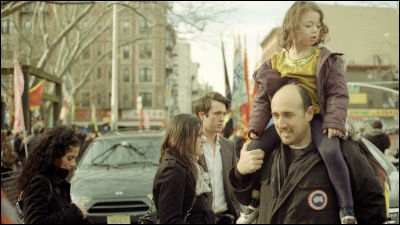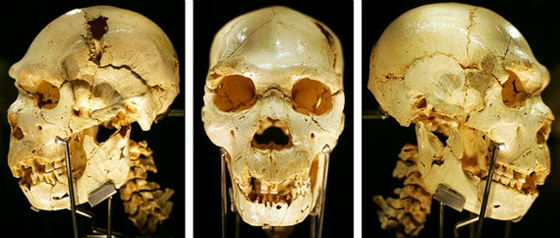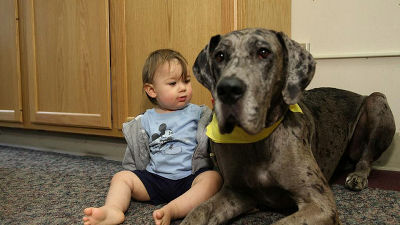The pain of the heart that loses social connection to the brain is the same as physical pain

ByDavid Tan
In recent years the importance of "KIZUNA" has been drawing new attention, but the human brain has become increasingly wanting "social connection" in the process of evolution. Loss of social connection seems to be "pain" for the brain.
Social Connection Makes a Better Brain - Emily Esfahani Smith - The Atlantic
http://www.theatlantic.com/health/archive/2013/10/social-connection-makes-a-better-brain/280934/
Dr. Matthew Lieberman, researcher of psychology / neuroscience, last month said "Social: Why Our Brains Are Wired to Connect"Was published. In the book, we clarify that the human brain has inherently the property seeking social connection.
The size of the animal's brain has a size proportional to the size of the body. However, humans are an exception that deviates from this brain-body size ratio, and we know that they have brains that are too large compared to the size of the body. Scientists have studied why the human brain evolved to such a great extent, but no definite answer has been found. However, the anthropologist Robin Dunbar "has a very large brain that lived in Africa about 600,000 to 700,000 years agoHomo · HeidelbergenisisIs the first human genus to share labor, create a village and buried the dead "may be the key to unraveling this mystery of the human brain which is too big. In other words, the human brain may have evolved greatly due to "social nature" (In the following, the state of social nature is expressed as "social").

Until now, brain scientists have often monitored the condition when the brain is active when studying the human brain. For example, it was studied how human brains work when solving mathematical problems or when given an active task such as handling a ball. However, recently, scientists carefully observed what the condition is when the brain is calm and not calm, and found that it takes the "default network" state. Even with a short break in solving mathematical problems, we know that the brain changes from an active state to this default network state.
According to Dr. Lieberman's research, it is surprisingly found that this default network state is almost the same as the state of the brain when people are thinking something, such as worrying about others It was. In other words, the brain will shift to a natural and social state during the break. Dr. Lieberman says, "Is it not that the brain has evolved by judging that it is best to prepare for the social time that the brain may come next time?"
It is only valuable that animals evolve, not limited to humans. In this respect, it is of great value to being social to humans. People who can not self-sufficiency can live by social connection.

ByMichael Heiss
In one study, when people feel desire is satisfied when they activate "Reward system"It turns out that it is more active when donating 10 dollars than when receiving 10 dollars (about 980 yen). Another research also knows that comforting someone in a hardship is a way to revitalize the reward system. Experiments by a couple of men and women reveal that the reward system is activated when a woman is holding a man's hand, and that it becomes more activated when a man is pain like an electric shock It is getting. The human brain becomes more active if you know that the other person needs affection.
Collaborative research by Dr. Lieberman and his wife Naomi Eisenberger shows that losing social nature and being rejected by society is more painful than imagined. In this study, let the subject play an Internet game called cyberball, then monitor the state of the brain. As for the content of the experiment, the subjects toss the balls in order with the two characters in the game, but from a certain point of time, only the subjects were made "out of companion" and the ball was not turned. This colleague is a story in the world of the game, and there is no loss in the real world, but it turned out that the subject was hurt and the brain felt the pain. Furthermore, it turned out that the part where the brain feels pain is the same as the part activated to treat this pain when feeling physical distress. From this, it became clear that social pain that the brain feels is very similar to physical pain. Subjects were asked about how much they were hurt by being left out of the game after the experiment, but the stronger the sense of alienation, the more active the part handling the physical pain of the brain It means that it was getting.

ByShandi-lee Cox
As a follow-up experiment, Dr. Lieberman now divided the subjects into two groups, one group drunk Tylenol (a kind of analgesic) daily before the experiment, three weeks before the experiment, and another group He had a placebo (a placebo) drunk. The result is that the placebo group had similar results to the previous experiment, whereas in the Tylenol group there was no social pain due to rejection. Dr. Lieberman wrote in his book "The brain feels like social pain as a physical pain, being hurt at the heart is the same as being broken."
In the first place, pain is a sign that something is wrong with the body. Social pain is necessary for us to be all injured and to establish a new human relationship to protect us from many threats and reconfirm long ago relationship It is a signal of the brain to inform you that.
Social connections are important for human survival and prosperity, just like food, safety and housing. However, as society evolved over the last 50 years and individualism progressed, social connections were lost. Modern people have fewer opportunities to do community service and few invite friends to their homes, and fewer married people, friends who closely share their lives and lives.

ByKristina Alexanderson
Lieberman was elected this year as an eligible researcher with an academic research expenditure of 3 million dollars (about 296 million yen) including a million pounds of pure remuneration (about 98 million yen). This was a surprisingly attractive cash for him, a researcher of psychology, but it seems that it was a condition to leave the family for 8 months in order to participate in collaborative research. After having suffered, the conclusion he issued was to decline acceptance of research expenses. He said, "It's only 8 months but I will not be able to regain that time (the time with my wife and son)."
Related Posts:
in Science, Posted by darkhorse_log







